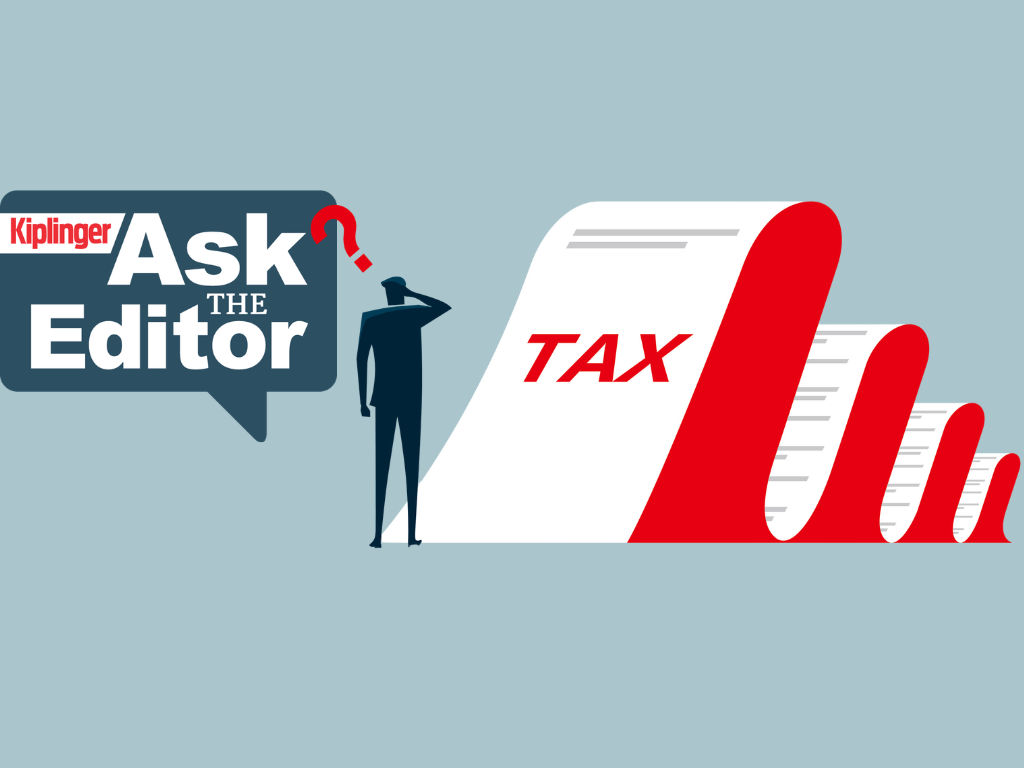A Move Away From Free Trade
President Trump says long-term gain will be worth short-term pain, but the pain could be significant this year.

Profit and prosper with the best of Kiplinger's advice on investing, taxes, retirement, personal finance and much more. Delivered daily. Enter your email in the box and click Sign Me Up.
You are now subscribed
Your newsletter sign-up was successful
Want to add more newsletters?
To help you understand what is going on in the economy and beyond, our highly experienced Kiplinger Letter team will keep you abreast of the latest developments and forecasts (Get a free issue of The Kiplinger Letter or subscribe). You'll get all the latest news first by subscribing, but we publish many (but not all) of our forecasts a few days afterward online. Here’s the latest...
Now comes the big test for the economy: Can it withstand the costs of new tariffs while awaiting potential benefits later, without slipping into recession? President Donald Trump is betting that it can. Businesses and investors aren’t so sure.
While Trump is levying tariffs selectively — enacting some, threatening more, holding off on still others as a bargaining move on other issues — a move away from free trade is clearly here. Businesses, consumers and investors need to adapt to an environment in which many imports cost more, some supply chains get scrambled, and U.S. exports become less competitive due to retaliatory tariffs. Hence, the recent sell-off on Wall Street, as concerns about tariffs hurting corporate earnings combine with broader concerns about the economy.
From just $107.88 $24.99 for Kiplinger Personal Finance
Become a smarter, better informed investor. Subscribe from just $107.88 $24.99, plus get up to 4 Special Issues

Sign up for Kiplinger’s Free Newsletters
Profit and prosper with the best of expert advice on investing, taxes, retirement, personal finance and more - straight to your e-mail.
Profit and prosper with the best of expert advice - straight to your e-mail.
Short-term pain, long-term gain?
For now, Trump isn’t budging. He thinks that some short-term pain is worth the long-term gain of bringing more manufacturing back to America. He may be right. Some firms are announcing that they will start making, or make more, products in the U.S. Among them are Hyundai, Honda, Volkswagen, Volvo, server maker Inventec, luxury-brand owner LVHM, Compal Electronics and Campari, the spirits maker. But forcing a major rebound in U.S. manufacturing is a long-term endeavor. Tariffs need to be both painful and long-lasting to justify investing in plants here.
Meanwhile, the costs of new tariffs arrive quickly. Consumers pay more as importers pass along part of the tariff cost. Manufacturers that rely on imports of materials or components see their costs rise, or worse, slow down production if certain goods are no longer economical to import. Higher costs risk fueling inflation. These concerns are likely behind the recent deterioration in consumer sentiment.
Shallow recession could hit this year
Our take: GDP growth is going to take a hit, and recession risk has risen. The economy still has key sources of strength. The unemployment rate remains low, even with recent government layoffs. As long as employment holds up, consumers will too, even if it strains their finances somewhat. So for now, outright recession doesn’t seem imminent. But a shallow one could hit later in the year as tariffs bite. If businesses slow investments and hiring due to confusing trade policy and consumers rein in spending due to worries about their jobs, the economy can’t help but suffer.
All this puts the Federal Reserve in a bind. If GDP is slowing but inflation is rising, the Fed has to choose which problem to address and which to let worsen. Since tariffs generally lead to one-time price increases, the central bank is likely to downplay the inflation risks, at least initially. But if tariffs lead consumers to think that more price increases are coming, that mindset can become self-perpetuating. That may tie the Fed’s hands on interest rate cuts just when the economy needs them.
This forecast first appeared in The Kiplinger Letter, which has been running since 1923 and is a collection of concise weekly forecasts on business and economic trends, as well as what to expect from Washington, to help you understand what’s coming up to make the most of your investments and your money. Subscribe to The Kiplinger Letter.
Related Stories
Profit and prosper with the best of Kiplinger's advice on investing, taxes, retirement, personal finance and much more. Delivered daily. Enter your email in the box and click Sign Me Up.

David is both staff economist and reporter for The Kiplinger Letter, overseeing Kiplinger forecasts for the U.S. and world economies. Previously, he was senior principal economist in the Center for Forecasting and Modeling at IHS/GlobalInsight, and an economist in the Chief Economist's Office of the U.S. Department of Commerce. David has co-written weekly reports on economic conditions since 1992, and has forecasted GDP and its components since 1995, beating the Blue Chip Indicators forecasts two-thirds of the time. David is a Certified Business Economist as recognized by the National Association for Business Economics. He has two master's degrees and is ABD in economics from the University of North Carolina at Chapel Hill.
-
 Why Some Michigan Tax Refunds Are Taking Longer Than Usual This Year
Why Some Michigan Tax Refunds Are Taking Longer Than Usual This YearState Taxes If your Michigan tax refund hasn’t arrived, you’re not alone. Here’s what "pending manual review" means and how to verify your identity if needed.
-
 If You'd Put $1,000 Into Caterpillar Stock 20 Years Ago, Here's What You'd Have Today
If You'd Put $1,000 Into Caterpillar Stock 20 Years Ago, Here's What You'd Have TodayCaterpillar stock has been a remarkably resilient market beater for a very long time.
-
 Good Stock Picking Gives This Primecap Odyssey Fund a Lift
Good Stock Picking Gives This Primecap Odyssey Fund a LiftOutsize exposure to an outperforming tech stock and a pair of drugmakers have boosted recent returns for the Primecap Odyssey Growth Fund.
-
 Ask the Editor, February 27: Questions on Tax Returns and Decedents
Ask the Editor, February 27: Questions on Tax Returns and DecedentsAsk the Editor In this week's Ask the Editor Q&A, Joy Taylor answers questions on how to file a tax return when someone has died and resources you can use to find more help.
-
 How AI Chatbots Can Secretly Give Biased Advice
How AI Chatbots Can Secretly Give Biased AdviceThe Kiplinger Letter “Poisoned” artificial intelligence can give untrustworthy advice about finance, health and lots more. Here’s how to fend off the growing threat.
-
 Private Capital Wants In on Your Retirement Account
Private Capital Wants In on Your Retirement AccountDoes offering private capital in 401(k)s represent an exciting new investment opportunity for "the little guy," or an opaque and expensive Wall Street product?
-
 Farmers Brace for Another Rough Year
Farmers Brace for Another Rough YearThe Kiplinger Letter The agriculture sector has been plagued by low commodity prices and is facing an uncertain trade outlook.
-
 AI Sparks Existential Crisis for Software Stocks
AI Sparks Existential Crisis for Software StocksThe Kiplinger Letter Fears that SaaS subscription software could be rendered obsolete by artificial intelligence make investors jittery.
-
 Big Change Coming to the Federal Reserve
Big Change Coming to the Federal ReserveThe Lette A new chairman of the Federal Reserve has been named. What will this mean for the economy?
-
 A Scary Emerging AI Threat
A Scary Emerging AI ThreatThe Kiplinger Letter An emerging public health issue caused by artificial intelligence poses a new national security threat. Expect AI-induced psychosis to gain far more attention.
-
 An Inflection Point for the Entertainment Industry
An Inflection Point for the Entertainment IndustryThe Kiplinger Letter The entertainment industry is shifting as movie and TV companies face fierce competition, fight for attention and cope with artificial intelligence.